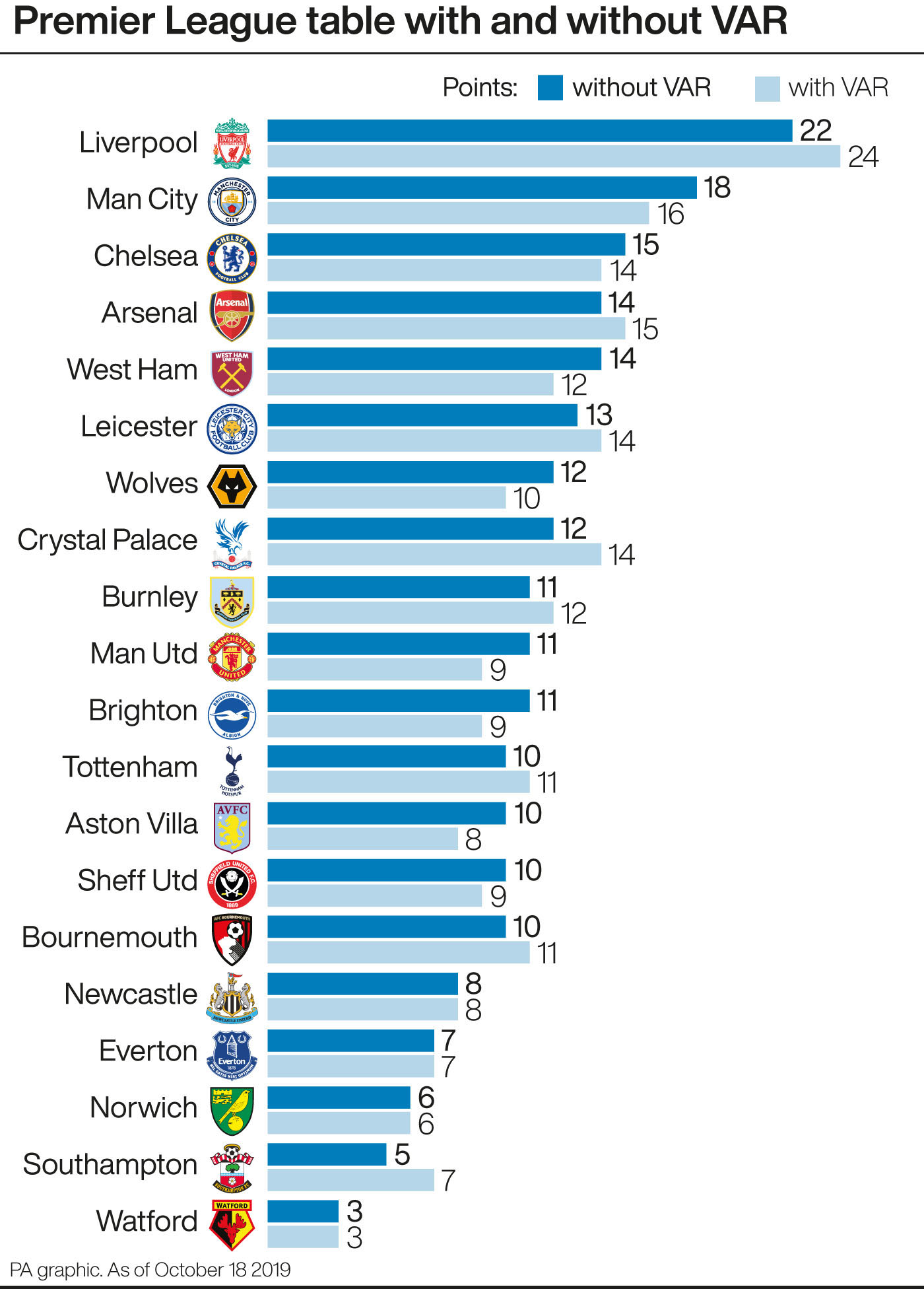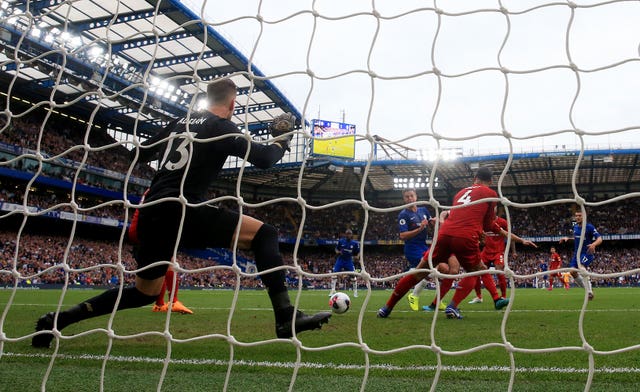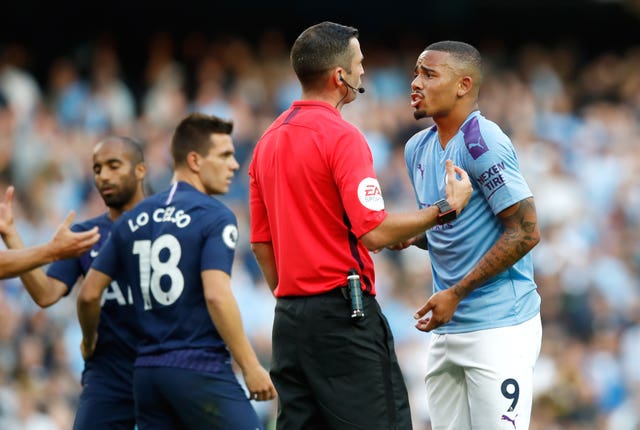
Liverpool return after the international break with an eight-point lead in the Premier League table – but without VAR, their advantage would have been halved.
This season’s introduction of the system into the top flight has been frequently controversial, though the number of incidents reviewed and overturned has been surprisingly low.
Despite that, the effects on the league table are already clear – starting at the very top.
How have key places been affected?

When Gabriel Jesus’ stoppage-time “winner” against Tottenham in August was disallowed, with VAR showing the ball had brushed City team-mate Aymeric Laporte’s arm in the build-up, it immediately looked a key moment.
With another tense title fight expected between City and Liverpool, such moments could ultimately decide top spot.
While that is not the case as it stands given City’s recent defeats, the two points lost have widened the gap as Jurgen Klopp’s side continue their 100 per cent start – thanks to a disallowed goal for Chelsea’s Cesar Azpilicueta that would have cost them two points.
With 24 points to City’s 16 through eight games, the Reds are dominant, but without VAR it would be a less imposing 22 against 18.

That Azpilicueta “goal”, when Mason Mount strayed offside earlier in the attack, would have also lifted Chelsea into the Champions League places at Leicester’s expense and up to third ahead of Arsenal – who would have lost to Manchester United, with Pierre-Emerick Aubameyang’s goal only given after a review.
At the other end of the table, Southampton would be in the relegation zone had VAR not disallowed Oli McBurnie’s goal against them for Sheffield United in September – Saints ultimately won that match 1-0.
Which teams have been most affected?

In terms of relative league position, Wolves are the main victims of VAR so far with a drop of four places in the standings.
Leander Dendoncker’s disallowed goal against Leicester, when Willy Boly was penalised for handball, cost Wolves two additional points which would have left them seventh instead of their current position of 11th.
Bournemouth, by contrast, would drop five places from 10th to 15th had Joshua King’s goal in September 28th’s draw with West Ham not been awarded by VAR.
Manchester United are languishing in 12th but would have at least been in the top half, in 10th, had Aubameyang’s goal not been awarded. Their current position would instead be filled by Tottenham, who would drop three places from ninth but for their reprieve when Jesus netted.

Brighton would be three places and two points better off had Leandro Trossard’s volley earned them victory over West Ham, but an offside against Dan Burn was picked up on replay.
West Ham’s games have been most affected, with five VAR decisions helping to change the score in four of their eight games. Strangely, though, all five decisions affected goals for the Hammers’ opponents – Jesus (again) and Trossard denied, but City’s Sergio Aguero benefiting from a re-taken penalty while King and Crystal Palace’s Jordan Ayew had offside calls overturned.
At the other end of the scale, Newcastle, Everton, Norwich and Watford’s games have been unaffected by VAR reversals – though Newcastle got lucky when Isaac Hayden’s handball was missed before Fabian Schar’s goal against the Hornets.
Caught on camera
📸 Confirmation of the VAR decision that saw King's goal correctly given #BOUWHU pic.twitter.com/LZvPipQTnJ
— Premier League (@premierleague) September 28, 2019
Two players have multiple goals affected, with Jesus the unluckiest player since the introduction of VAR having had two goals chalked off due to the most marginal of infringements by team-mates, halving his tally to date.
Raheem Sterling was millimetres offside at West Ham on the opening day while Laporte had no intention to handle against Spurs – but with no “clear and obvious” standard to overcome for those decisions, both goals were wiped out.
King, though, has already seen his luck even out – he was offside when converting Dominic Solanke’s pass against Southampton but just a week later was shown to be onside from Nathan Ake’s touch against West Ham.


Why are you making commenting on The Herald only available to subscribers?
It should have been a safe space for informed debate, somewhere for readers to discuss issues around the biggest stories of the day, but all too often the below the line comments on most websites have become bogged down by off-topic discussions and abuse.
heraldscotland.com is tackling this problem by allowing only subscribers to comment.
We are doing this to improve the experience for our loyal readers and we believe it will reduce the ability of trolls and troublemakers, who occasionally find their way onto our site, to abuse our journalists and readers. We also hope it will help the comments section fulfil its promise as a part of Scotland's conversation with itself.
We are lucky at The Herald. We are read by an informed, educated readership who can add their knowledge and insights to our stories.
That is invaluable.
We are making the subscriber-only change to support our valued readers, who tell us they don't want the site cluttered up with irrelevant comments, untruths and abuse.
In the past, the journalist’s job was to collect and distribute information to the audience. Technology means that readers can shape a discussion. We look forward to hearing from you on heraldscotland.com
Comments & Moderation
Readers’ comments: You are personally liable for the content of any comments you upload to this website, so please act responsibly. We do not pre-moderate or monitor readers’ comments appearing on our websites, but we do post-moderate in response to complaints we receive or otherwise when a potential problem comes to our attention. You can make a complaint by using the ‘report this post’ link . We may then apply our discretion under the user terms to amend or delete comments.
Post moderation is undertaken full-time 9am-6pm on weekdays, and on a part-time basis outwith those hours.
Read the rules here